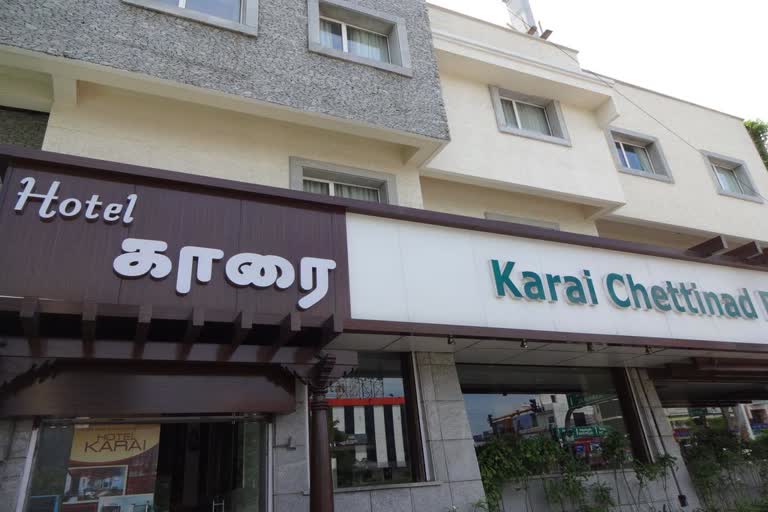Chennai: Facing severe water shortage and high vegetable prices, restaurants/hotels serving South Indian meals are mulling ways to tackle the situation, including stopping lunch meals, said an official of a hotel association.
"It is a major crisis faced by the hotels in Chennai and also in other parts of the state. With rains failing, the prices of vegetables have gone up. Further with the severe water shortage, the hoteliers are facing a very touch situation," R.Srinivasan, Secretary, Tamil Nadu Hotels Association (TNHA), told IANS.
According to him, the usage of water will be high if a typical South Indian lunch is served. Their dishes will be served in a couple of cups, apart from the plates. These have to be washed in fresh water.
"Instead of using the plate, food can be served in banana leaves. But the failure of rains has hit the crops and the cost of leaves have gone up. The single usage plastic products have been banned by the state government, so that option is ruled out," Srinivasan said.
He said only food grade plastic items are to be used to serve food, which would increase the cost for the hotels. "It is a multiple whammy for the restaurant owners," Srinivasan said.
One of the ways to reduce water usage in washing is to use dishwashers.
"But dishwashers are not very effective in cleaning the greasy plates or cups. Some of our dishes are greasy owing the use of oil and ghee," Srinivasan noted.
Also read: India tops tech visa applications for UK: Report
According to him, a typical mid-sized restaurant serving South Indian fare would need about 10,000 litres of fresh water every day.
"The cost of water too have gone up several times. Earlier a tanker load - 12,000 litres - would cost about Rs 2,500 and now it is Rs 5,000 with supplies not assured," Srinivasan said.
One of the options that is being looked at, he said, is to serve quick/executive lunch - premixed dishes like sambar/rasam/curd rice.
Srinivasan, however, said that no restaurant till now has stopped serving South Indian meals for lunch.
"While families would prefer to go to restaurants and have their food so that the water consumption at home could be reduced, the restaurants are interested in pushing take-aways so that they can cut their water consumption," he said.
Meanwhile, Municipal Administration Minister S.P.Velumani said no hotel has been shut down for want of water.
According to him, water supply in Chennai has been increased to 525 million litres per day (MLD) from 450 MLD and the number of trips by tankers have been increased.



